On the morning of March 18, in Hanoi, the Ministry of Agriculture and Rural Development and the Korea International Cooperation Agency (KOICA) held a workshop on "Vision of Vietnam - Korea cooperation in the agricultural sector to 2030".
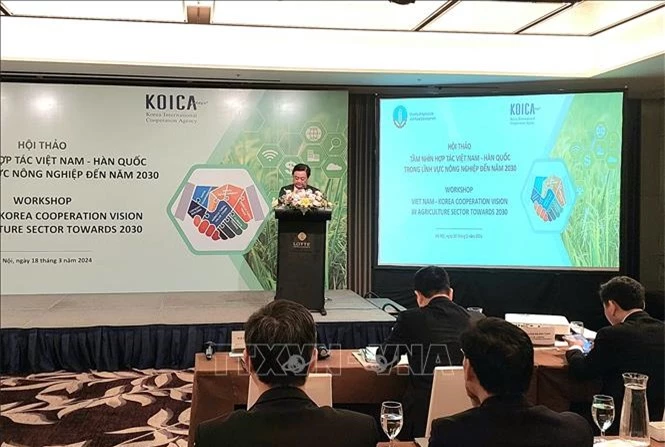
According to Minister of Agriculture and Rural Development Le Minh Hoan, Vietnam and Korea both have potential and advantages to cooperate in agricultural development. Korea is a country with modern agriculture and rich plant varieties. Vietnam is one of the world's leading agricultural exporters with many outstanding products such as: rice, vegetables and fruits, seafood, industrial crops...
Vietnam - Korea cooperation in the agricultural sector mainly focuses on technology transfer in developing biofuel crops, high-quality vegetable varieties, edible mushroom and medicinal mushroom production technology, safe food production, temperate fruit tree development, agricultural extension development, application of technology in agriculture; promoting trade in agricultural products with strengths of the two countries.
"Korea has many advantages in applying high technology in agricultural production and processing that Vietnam really wants to cooperate with in the coming time," said Minister Le Minh Hoan.
Mr. Chang Won Sam, Chairman of the Korea International Cooperation Agency, said that KOICA identifies agriculture as a key area of cooperation between the two countries and continues to provide systematic support according to a common and long-term strategy.
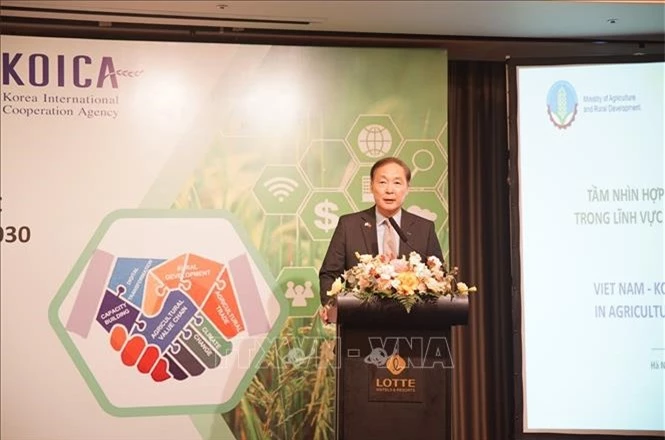
According to Mr. Chang Won Sam, in an effort to bring a stable and prosperous life to the people, KOICA is supporting the improvement of production capacity, market capacity in agriculture, forestry and fisheries, sustainable rural development, building production networks to respond to climate change and conserve natural resources.
KOICA will continue to support Vietnam's agricultural development through many projects such as: improving value chains, promoting market linkages, and enhancing capacity to respond to climate change.
"The keywords for cooperation in the coming time are: digitalization, climate change, innovation, promoting the application of science and technology in agriculture. Thereby, helping to increase income for Vietnamese farmers, ensuring sustainable development," Mr. Chang Won Sam emphasized.
At the workshop, Minister Le Minh Hoan also thanked the Korea International Cooperation Agency for its interest and support in "Building a Vision for Vietnam - Korea Cooperation in the Field of Agriculture and Rural Development for the 2024-2030 Period".
According to Minister Le Minh Hoan, the report is very important and practical, thereby identifying potential areas of cooperation to maximize the comparative advantages of the two countries, diversifying types of cooperation and investment to improve efficiency and ensure sustainability.
This activity is expected to contribute to promoting sustainable growth of Vietnam's agricultural sector; promoting investment and trade cooperation between Vietnam and Korea in the fields of agriculture and rural development in a sustainable and inclusive manner; and strengthening the cooperation structure between the public and private sectors, said Minister Le Minh Hoan.
Regarding Vietnam-Korea agricultural cooperation, Mr. Nguyen Anh Phong, Deputy Director of the Institute of Policy and Strategy for Agricultural and Rural Development, said that Korea is an important export market for Vietnamese agricultural products. The export value of Vietnamese agricultural, forestry and fishery products to this market increased threefold from 2010 to 2023. Currently, Korea is the fourth largest market for Vietnamese agricultural, forestry and fishery products.
Since the Vietnam - Korea Free Trade Agreement (VKFTA) took effect, the export value of Vietnam's agricultural, forestry and fishery products to Korea has increased sharply, reaching an average of over 2 billion USD/year in the 2016-2023 period.
Meanwhile, Vietnam is also the fourth largest market for South Korea's agricultural, forestry and fishery exports. Since the VKFTA, South Korea's agricultural, forestry and fishery exports to Vietnam have increased by an average of 6.2% per year.
Regarding investment, although Korea is the leader in FDI capital in Vietnam, Korean FDI in Vietnam's agricultural sector accounts for only 0.17% of Korea's total FDI capital in Vietnam. Investments are mainly concentrated in a number of localities with favorable conditions in terms of climate, land, infrastructure, human resources, raw material areas and investment incentives. By 2022, there will be 39 projects in effect.
Regarding ODA capital, Korea is the second largest support partner for Vietnam's agricultural sector. Korea's ODA capital has contributed to the development of Vietnam's agriculture by improving the productivity and quality of crops, livestock and aquatic products. However, Korea's ODA capital for Vietnam's agriculture only accounts for 3.36% of Korea's total ODA for Vietnam.
According to VNA
Source


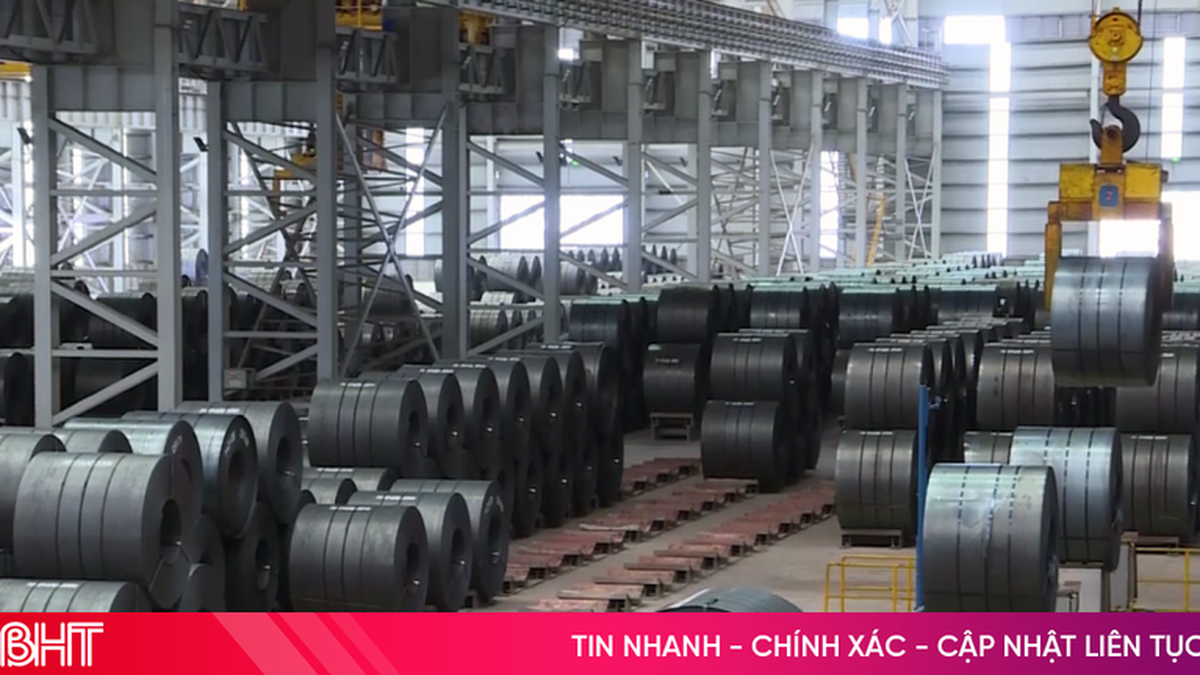
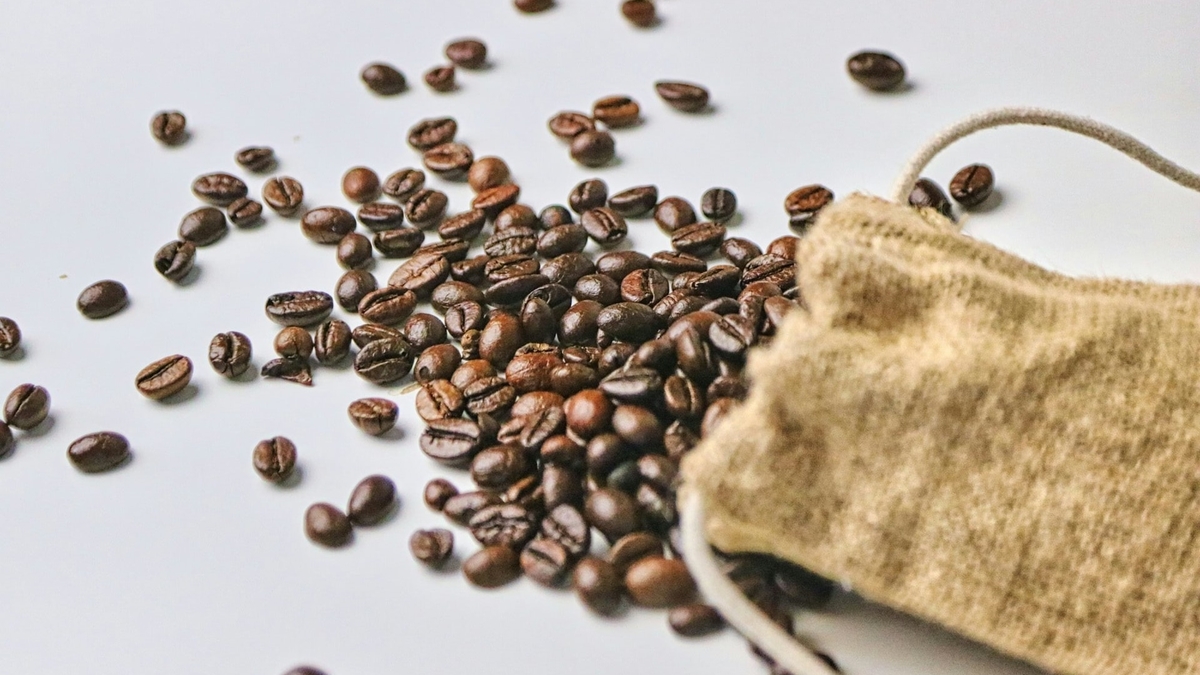
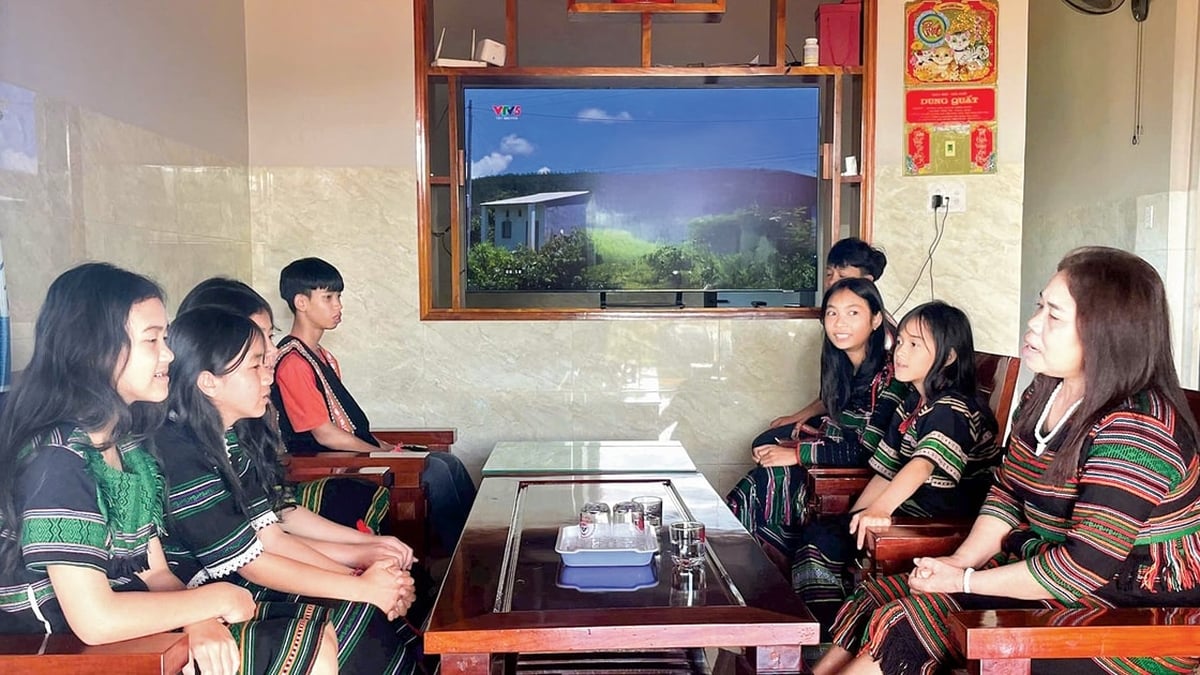
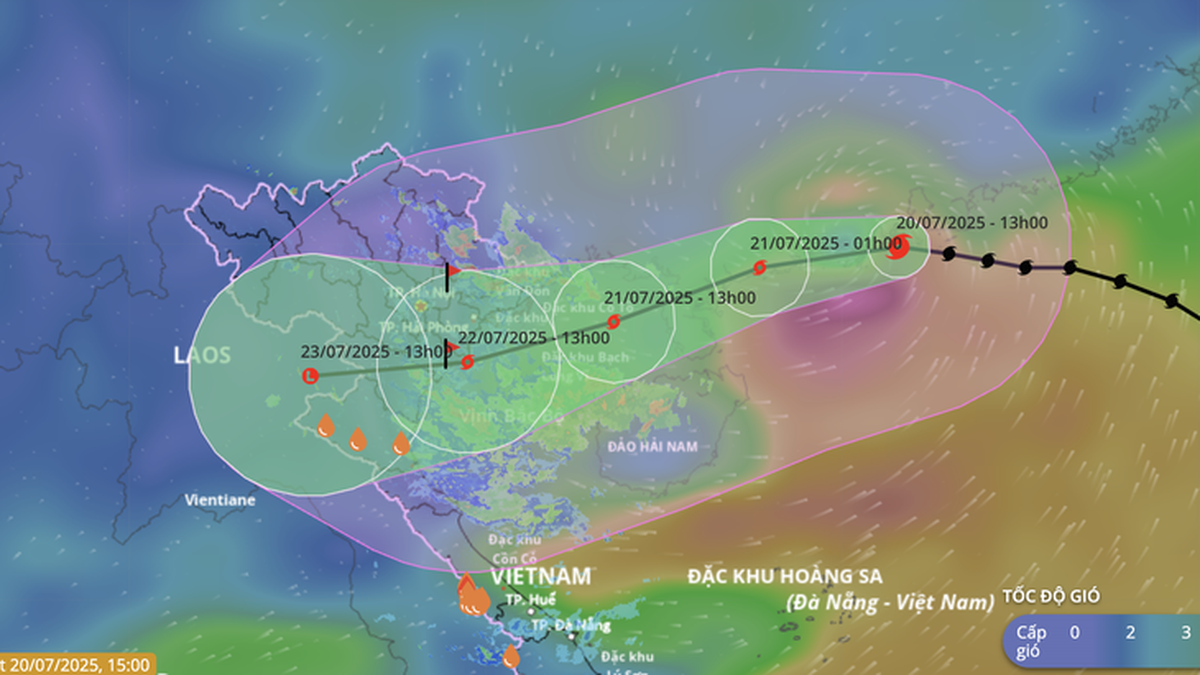
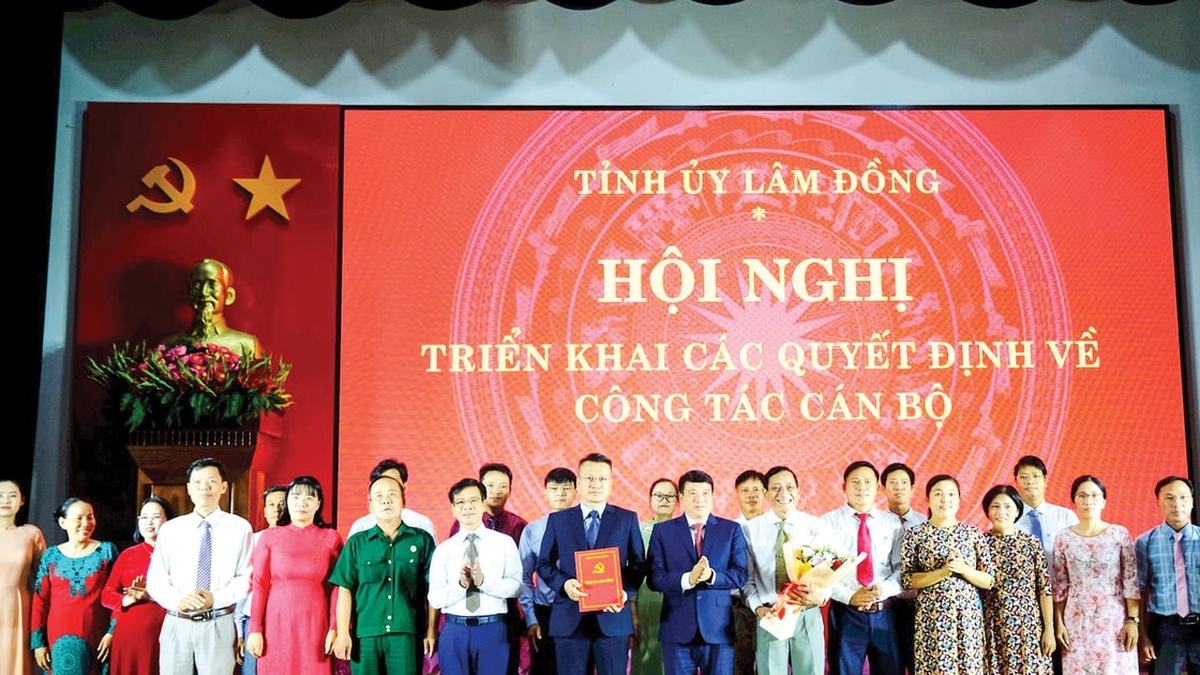
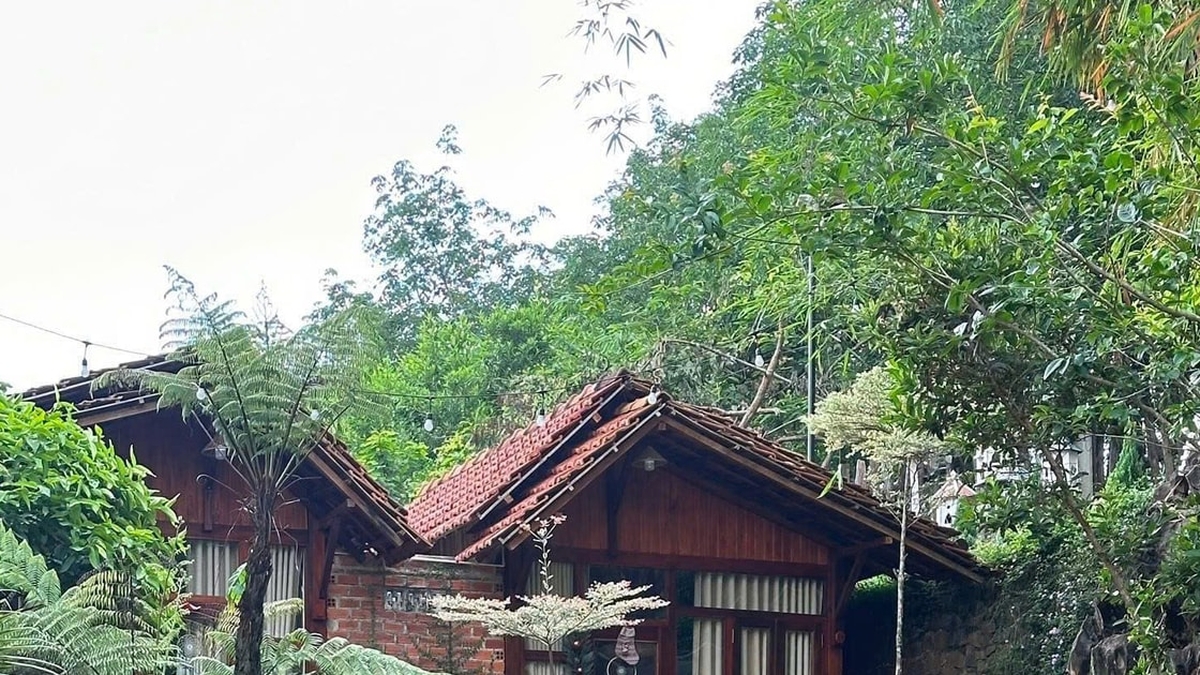

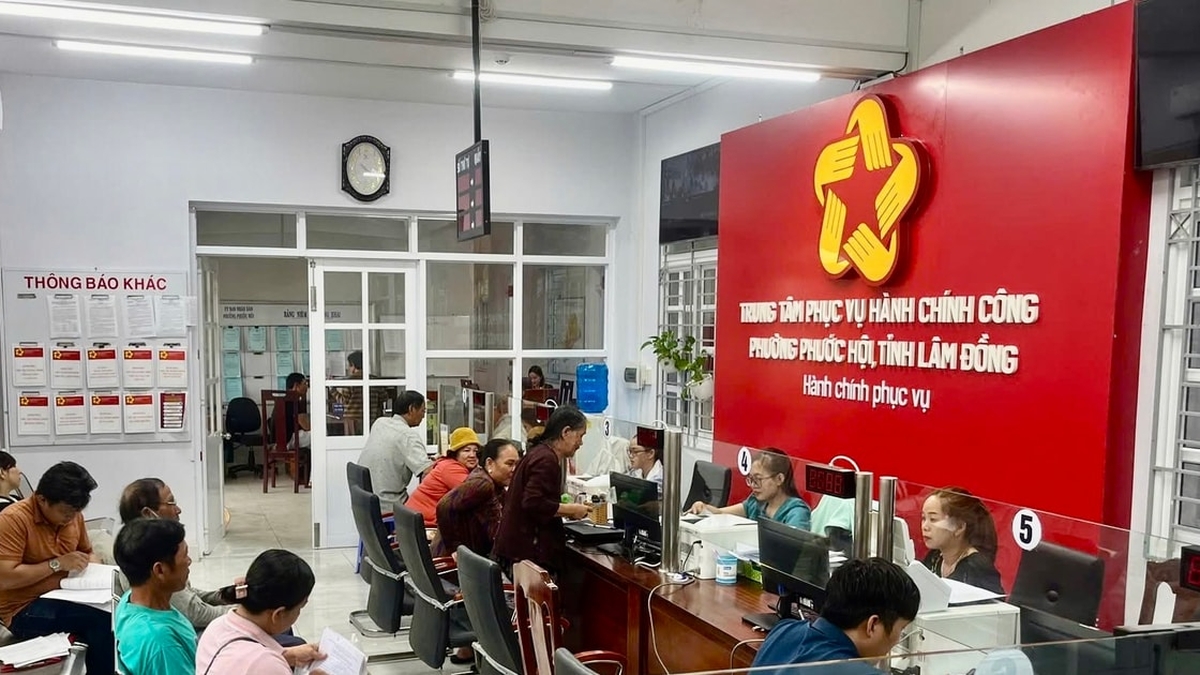
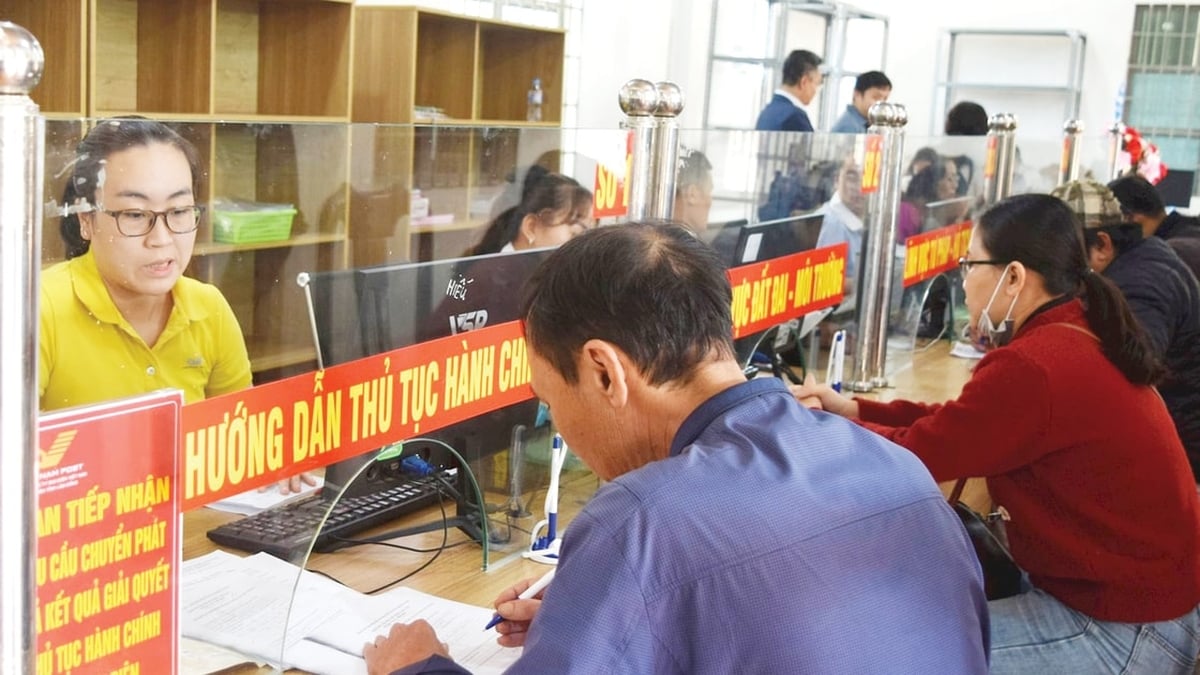
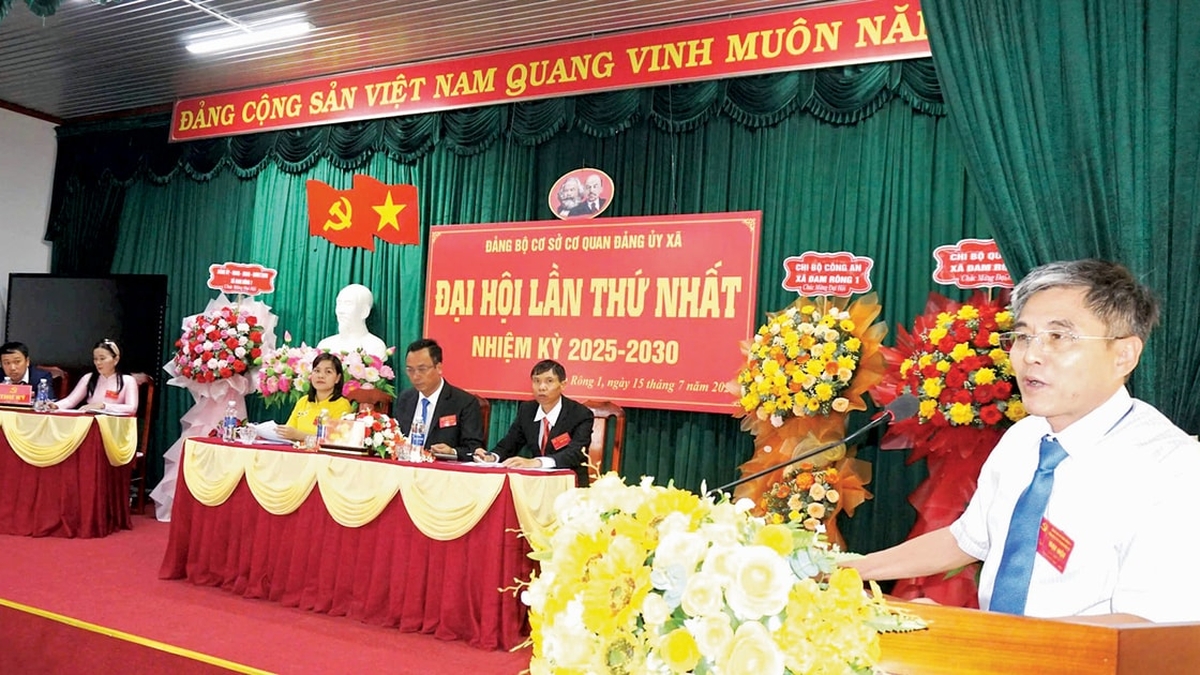













![[Photo] National Assembly Chairman Tran Thanh Man visits Vietnamese Heroic Mother Ta Thi Tran](https://vphoto.vietnam.vn/thumb/1200x675/vietnam/resource/IMAGE/2025/7/20/765c0bd057dd44ad83ab89fe0255b783)








































































Comment (0)